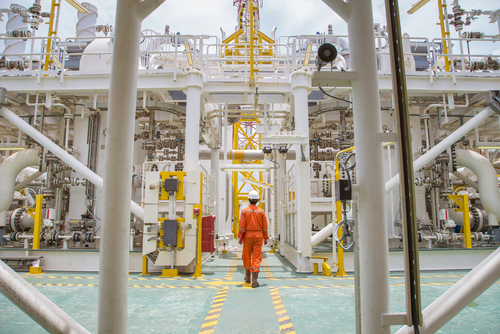Lloyd’s Register conducted a survey on on maritime workers’ wellbeing during COVID-19. The survey revealed that seafarers feel forgotten and abandoned, keeping in mind that the crew change crisis is ongoing.
The COVID-19 pandemic has lead to great disruption in the shipping industry and the seafarers’ wellbeing and mentality. Thus, to help provide the maritime industry with lessons on how it can improve its response to the pandemic now and in the future, Lloyd’s Register (LR) launched an industry-wide survey on 25 June 2020 to evaluate the impact of COVID-19 on maritime workforce wellbeing and operational practice.
Key highlights:
- 66% of the respondents to the survey were shore staff, while 34% were sea staff.
- Slightly more than half of the shore staff (56%) said they were back in the office and 42% were working from home, and on average they had 80 days of COVID-19 extended leave.
- 40% of ship staff were at sea on a planned contract whereas 33% were at sea on a COVID-19 extended contract, unable to leave the ship or get home. This lasted for 75 days on average.
- Other ship staff (11%) said they were off contract on planned leave; another 11% were off contract, repatriated from a COVID-19 extended contract;
- 4% said they were off contract due to extended COVID-19 leave, unable to join a ship, and reported this lasted on average 150 days.
The responses came from all the shipping sector:
- dry bulk carriers (17%)
- tankers (16%)
- container ships (8%).
Most responses came from the United Kingom (17%), India (13%), Greece (9%), and Australia (9%).
In addition, the survey noted that ship staff were more negative about their situation across the board, with workload and fatigue, quality and variety of food, and lack of exercise all areas of concern. Maintaining good mental and physical health requires a holistic approach with a good diet, exercise, rest, and support mechanisms needed to feel positive, healthy, and happy.
Also, only 13% of ship staff strongly agreed that they are performing an essential role during the pandemic, and just 8% strongly agreed they feel valued in their role.
Joanne Stokes, principal human factors consultant, human factors manager, marine, LR, noted that the IMO, the International Labour Organization (ILO), and the International Civil Aviation Organization issued a joint statement on the designation of seafarers and air personnel as key workers on 22 May 2020. As of mid-August, 42 countries recognized seafarers as key workers.
For the rest of the countries to do so, there is a need for further political and public pressure to be placed on the remaining countries.
The survey also asked how their organisation has supported them throughout the pandemic.
More ship staff (50%) said they had access to a professional person through their job that can provide personal advice and support, such as a counsellor or welfare officer, compared with 32% of shore staff.
Despite the higher ship staff percentage, the ratio of uptake was not dissimilar: 30% of shore staff used professional services and 17% of shore staff took advantage of the help.
Reasons ship staff gave for not seeking help was the stigma surrounding mental health and concerns it could hurt their employment. Others said they felt there was no need to, that they had support from their family or, worryingly, that they did not think it would be effective.
Moreover, the survey also found that respondents, particularly ship staff, noted issues with their organisation’s communication.
19% of ship staff strongly disagreed that their company answers staff questions and concerns quickly and in full, compared with 12% of shore staff.
15% of ship staff strongly disagreed that the company effectively communicates the reasons behind any COVID-19-related actions taken, compared with 11% for shore staff.
18% said they strongly disagreed that actions are taken promptly when wellbeing concerns are raised, compared with 13% of shore staff. This could well be behind a differing perception from sea to shore over how their organisations are handling the wellbeing crisis: 17% of ship staff strongly disagree their organisation is handling the crisis well, compared with 10% of shore staff.






























































